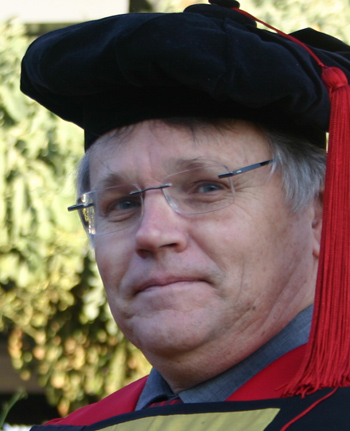|
 |
Prof Dolf Britz
Photo: Supplied
22 April 2013 |
Prof Dolf Britz has been awarded the honour of an appointment at Yale Divinity School (YDS) at Yale University in New Haven, Connecticut, in the United States. Starting in August 2013, Prof Britz will be involved in research initiatives and the teaching of post-graduate seminars at the university, which was founded in 1701.
The appointment is the natural progression of a collaboration agreement between the University of the Free State (UFS) and Yale University which dates back to 2009 with the formation of the Jonathan Edwards Centre Africa. The strategic partnership focuses on increasing African access to quality education and is geared towards empowering new-generation African leaders in academic and faith-based organisations with primary scholarly resources, research, education and publication.
Prof Britz’s appointment is equally exciting to the respective faculties involved at the UFS and Yale.
“We are most grateful that the generous support by the University of the Free States makes it possible for Prof Britz to be with us in this capacity,” said Prof Carolyn Sharp, Interim Associate Dean of Academic Affairs at YDS.
Prof Adriaan Neele, the Director of the Jonathan Edwards Center at Yale and extraordinary professor at the UFS, thinks Prof Britz’s appointment can be just as beneficial to YDS students.
“Prof Britz’s keen insight in historical primary sources will be very beneficial to Yale’s students and the faculty. His appointment demonstrates the strategic nature of the academic relationship between the UFS and Yale,” he said.